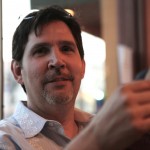A recent study has found a causal link between moderate to high risk of suicide and sleep deprivation. It furthered that for every one-hour increase in quality sleep, there was a 72-percent decrease in suicidal ideation.
"We were surprised by the strength of the association between sleep duration and suicide risk," said primary author Linden Oliver, MA, clinical research coordinator for the University of Pennsylvania Behavioral Sleep Medicine Research Program in Philadelphia, PA. "A 72- percent decrease in the likelihood of moderate or high suicide risk with a one-hour increase in sleep is interesting given the small sample size."
Oliver will showcase the studies findings on June 4th at the 27th annual conference, SLEEP 2013 in Baltimore, Md.
Although the field of sleep medicine had made great strides in treating sleep apnea, many believe it has fallen short in developing effective treatments for insomnia. The pharmaceutical industry has enjoyed approximately 4.5 billion in annualized profit from prescription sleeping pills, and due to these huge profits it stands to reason that new, non-drug treatments for insomnia have been slow in coming.
However this may be changing. A tightly controlled study from Scripps
revealed that people taking as little as 18 prescription pills per year
have over a four-fold increase in premature death, compared to the
general population not taking them. This landmark study has shaken the
sleeping-pill market to its very foundations. As a result of this study,
the FDA announce through a press release that all doctors are required
to reduce the dosages for several insomnia medications by half the
normal amounts.
For those long dependent
on Ambien and other medications, this is frightening news. Because even a
small drop in their dosages can often send them into a state of little-to-no sleep for weeks on end. The other obvious challenge is that even
with a lowered dose, the source of the insomnia still remains
untreated. Sleep science has an obligation to begin real research into
what's causing insomnia in the first place. With enough funding, non-drug treatments like neurofeedback can
then be seen as legitimate options to flooding the brain with compounds
that are deleterious to the health and welfare of the world public.





